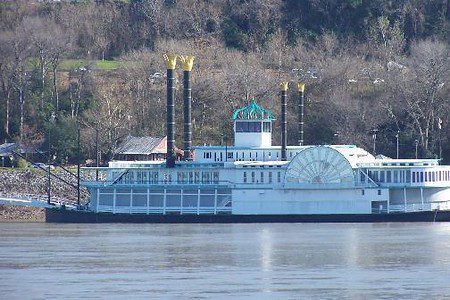
If you’ve watched films such as Maverick, starring famed anti-semite Mel Gibson, or TV shows like Ozark, you will know at least a passing amount about riverboat casinos. They often look like something out of a Mark Twain novel, powered by steam and paddles and are suggestive of a bygone era when you see them floating on the water. In the modern era, of course, they are filled with bright and flashy slot machines that make a lot of noise and ensure that you won’t be expecting Twain to walk around the corner.
The idea behind riverboat casinos was that it would limit the areas in which casinos could be constructed, enabling gambling but keeping it to specifically designated areas. The fact that the boats were seldom taken away from the dock, or even ever taken away in some cases, didn’t change the point that the legal fiction was able to be sold by various authorities. In essence, there is no difference between a riverboat casino and a permanent one on land, with the exception being that boat casinos can get licences to operate where land ones can’t.
The History of the Riverboat Casino
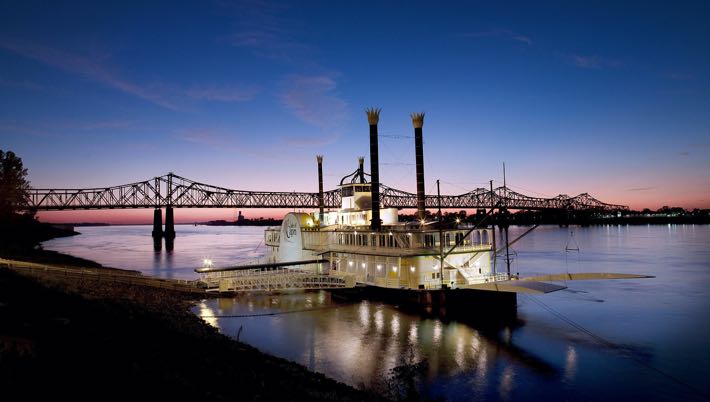
You can’t understand the history of riverboat casinos without first having a sense of the history of riverboats in general. Paddlewheel riverboats were introduced to the Mississippi River and some of its tributaries as a way of transporting passengers and goods during the 19th century. By the 20th century, however, rail had largely taken over as the quickest and cheapest way to get things around the country, meaning that the paddlewheel riverboats needed to be re-invented as something else entirely. This was when they began to be used as floating casinos.
Entertainment for Long Voyages
Of course, gambling and sailing has a long history. Voyages by sea are long and tedious, with ships in the past lacking the entertainment options that you would expect to find nowadays. So it is that sailors and passengers would often engage in games of chance whilst taking part in a long voyage. As life in the United States of America reached a degree of normality in the wake of the American Civil War, riverboats began to be used as a way of enticing gamblers to places where they would otherwise have nowhere to go.
Legal Loopholes
States had widely prohibited gambling in the US by the start of the 20th century, which is why those looking to gamble sought legal loopholes. States began to approve the use of riverboats, especially in ones that had frontage along the Mississippi. It was for this reason that the likes of Illinois, Louisiana, Indiana, Missouri and Mississippi itself began to allow a limited number of riverboat casinos to be opened, attracting gamblers that wouldn’t be allowed to place a legal bet on land in those same states, save for on Native American Reserves.
City of Traverse
The first riverboat casino, the City of Traverse, set sail on Lake Michigan in 1904. The Big Muddy, as the Mississippi River was known, bordered several different states, which made it something of a legal grey area. It was for this reason that Senator Lyndon Johnson helped to draft the Transportation of Gambling Devices Act in 1951. That made it a crime to transport gambling decides over state lines, unless it was legal at the destination. It didn’t stop all riverboat casinos, but it made it trickier for some of them.
What Riverboat Casinos Offer
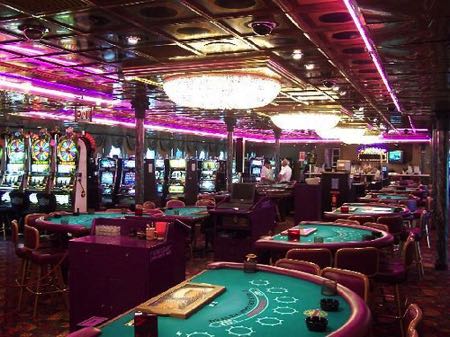
As with casinos on land, riverboat casinos offer different things to customers based on numerous different factors. If a riverboat casino has discovered that very few people in the area enjoy playing poker, for example, then they are going to be unlikely to actively offer a poker room. Similarly, if it is discovered that people heading to one riverboat casino aren’t playing slots, then slot machines will be limited in number. As with land-based casinos, it is the customer that dictates what is and isn’t offered by a riverboat casino, wherever it is located.
That being said, there are some things that you can expect to enjoy at most riverboat casinos. Table games are always popular at such venues, meaning that the likes of roulette, craps and blackjack are commonplace. Equally, slots are usually good money makers for any casino, so a floor that is dedicated to such electronic forms of gambling isn’t unusual. Whilst card rooms for poker games and so on aren’t always found, they also aren’t unusual. In short, if you want to do something specific, it’s worth finding out if the riverboat casino you’re heading to offers it before you get there.
Do They Have to Be Sailing for You to Gamble?
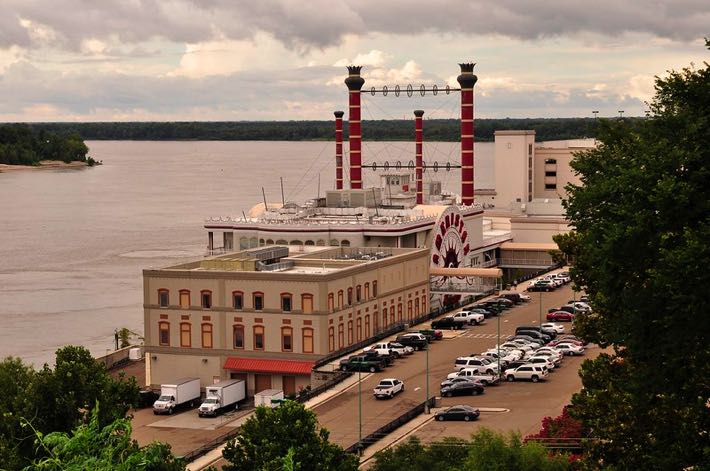
Now that we know a little bit more about riverboat casino and their origin, it is worth asking the question about whether or not they need to be gambling in order for you to be able to place a bet. The short answer is: it depends. Each state has its own rules and regulations around how riverboat casinos have to work, which includes whether or not they need to be sailing for betting to be legal. In the majority of cases, the rule of law states that the casino has to be ‘solely over and in contact with the surface’ of the river it is on.
What this means, in essence, is that the main bulk of the riverboat casino has to be in the water. It can be connected to land by something like a bridge, but it would need to be able to sail away if required to do so by the licensee. To put it another way, in most states, it couldn’t be a building built on the docks or on the side of the river in order to be a legally licensed casino. Instead, it needs to be in a situation where the majority of the vessel is in the water and only a method of getting on board is allowed to be on the nearby land.
The Curious Case of the Potomac River
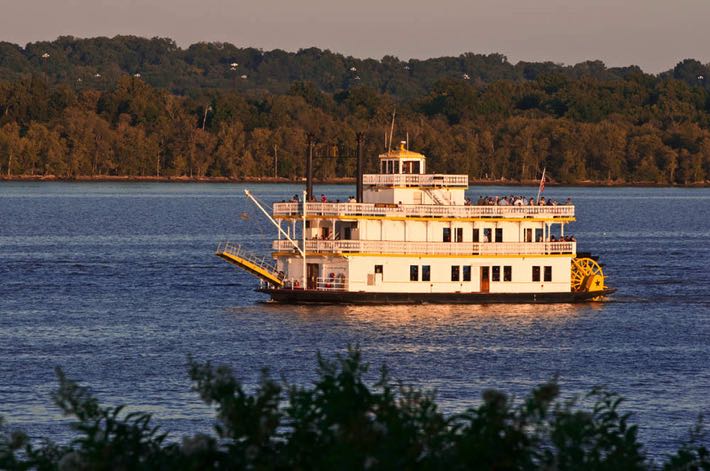
The interesting thing about riverboat casinos is that they regularly end up being in fascinating situations. This is perhaps best demonstrated by the tale of the Potomac River, which is on the state border of Maryland and Virginia. In the middle of the 20th century, there were several riverboat casinos docked off the coast of Virginia, even though gambling wasn’t legal there. The border between the two states isn’t the middle of the river, but rather at the low water mark on the Virginia side of it, confusing things.
The result of the state border being where it is is that, with the exception of a small part of the river that is in the District of Columbia, the majority of the river is technically in Maryland. For this reason, punters could drive to Virginia and park there before walking onto a riverboat casino, at which point they had crosses state lines and were in Maryland. They were then able to gamble entirely legally, all whilst within virtual touching distance of a state where it would have been illegal to have been doing exactly the same thing.
The Riverboat Casinos That Pushed Their Luck
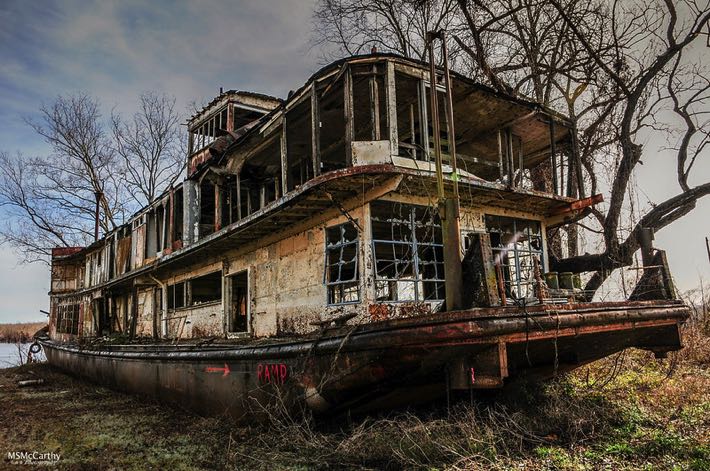
In 1994, it was decided by voters in Missouri to allow ‘games of chance’ to take place on the Mississippi River and the Missouri River. Four years later and the state Gaming Commission believed that just three of the 16 such casinos operating in the river were ‘clearly on the main river channel’. As several casinos had actually been located on riverboats that were in an area with water that was adjacent to the river, such as a lock, it was felt by those that were against gambling in the state that they should be shutdown.
By that point, however, the state had realised just how much was being brought in thanks to tax on the $652 million industry. The state was entirely unwilling to give up the revenues being generated by the riverboat casinos, so over a period of time the rules were relaxed. It got to the point that casinos were allowed to be built on stilts, with the only proviso being that they had to be over water that was navigable. This meant an end to the practice of ‘Boats in Moats’ that the area had become quietly quite famous for.
When Hurricane Katrina hit the US in 2005, many of the riverboat casinos were destroyed entirely. The casinos themselves, as well as the hotels and restaurants that adjoined them, were left devastated. What resulted was a decision from many states to change their regulation on the matter, allowing casinos to be built on land as long as they were within certain geographical limits close to a navigable waterway. Since the hurricanes the majority of Mississippi’s riverboat casinos have been rebuilt with far more solid foundations.
Riverboat Casinos & Native Americans
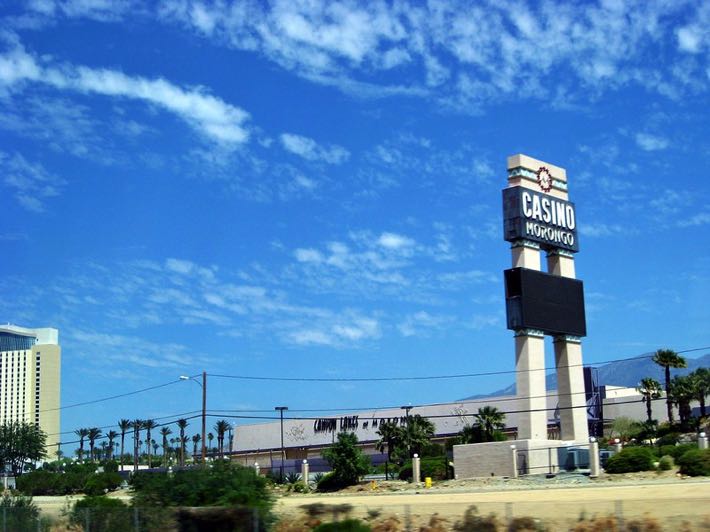
It might seem strange, but those that love riverboat casinos actually owe a debt of thanks to Native Americans. Towards the end of the 1980s, the case of California v. Cabazon Band of Mission Indians ended up in front of the Supreme Court. The state of California believed that the games of poker and bingo that were taking place on the land of the Cabazon Band of Native Americans violated state law. The Native Americans, unsurprisingly, disagreed, believing that tribal land fell under civil regulatory laws, not the lawful jurisdiction of the state.
The Supreme Court found that California’s state lottery meant that gambling was not prohibited as a criminal act, meaning that the authority to regulate any gambling actives on tribal lands fell outside the powers that were granted by the Public Law 280 ruling. This had lasting impact for Native Americans around the sovereignty of their land, including the fact that states could not impose regulations on reservation gaming. Instead, gambling in Native American land could only be questioned if it was in a state where gambling was considered criminal according to the state laws.
This led to an explosion of legalised gambling in states throughout America. The result of this was that states wanted to get in on the act, hoping to open casinos that would allow them to make money whilst limiting the influence of organised crime. The result of this was that riverboat casinos sprang up in places where the geography allowed it, ensuring that most of the new venues owed a lot to the Native Americans that had pursued the right that they believed they had to gamble legally on their own land.
Curious Things About Riverboat Casinos
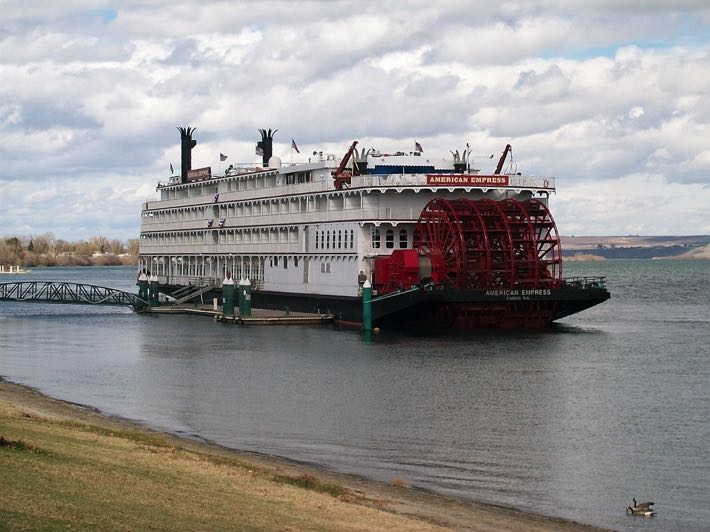
There are numerous different facts about riverboat casinos that are interesting and worth knowing. For example, many historians believe that vigilantes would take the law into their own hands when cheats were found to be operating on riverboat casinos. In 1835, a group of five such cheats were lynched in Vicksburg in the state of Mississippi after having been discovered. Also, when riverboat gambling was first legalised in Louisiana, any vessels operating out of the state had to look like a 19th century paddleboat.
By 2018, there were 63 riverboat casinos operating across the six states where it was legal for them to do so. That year, Illinois took $382.5 million in state tax, whilst it was $152.1 million in Missouri. In terms of examples of riverboat casinos, there is perhaps none as impressive as the American Empress, which is diesel-powered and stands at 360 feet in length. As well as the casino on board, there are also artefacts from the Gold Rush, Russia and Native Alaska, making it a floating museum, as well as a casino.